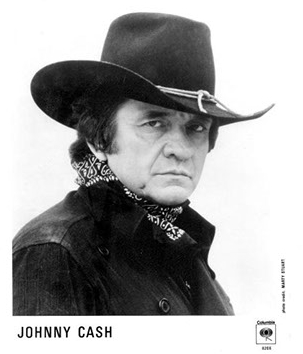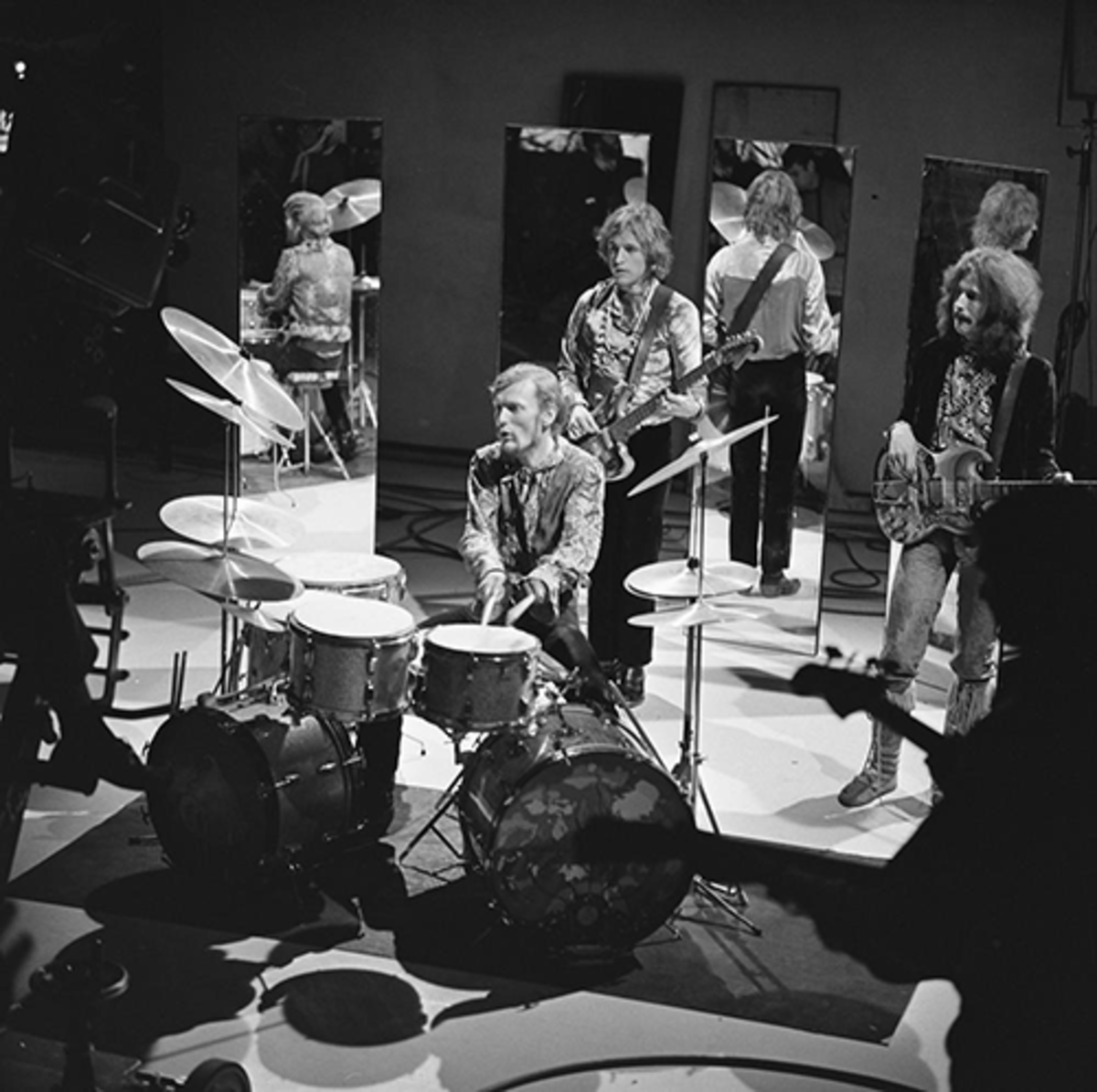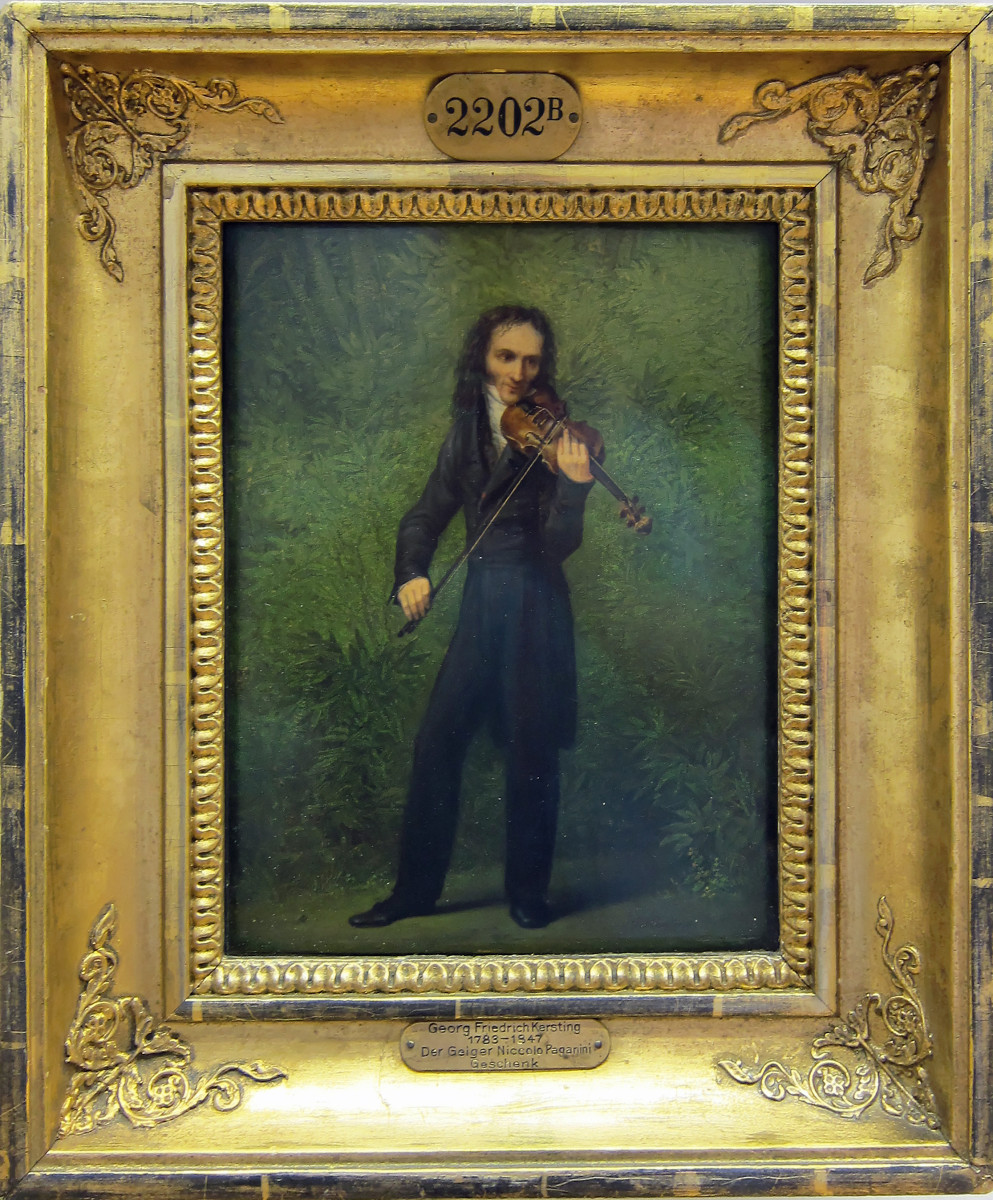10 Essential Johnny Cash Songs

Johnny Cash is one of the towering legends in American popular music history. His career lasted almost 50 years and he is one of the few performers to be inducted into the Country, Rock, and Songwriting Hall of Fames. Johnny has recorded dozens of great songs over the years. The ten on this list try to represent all facets of his musical career and life, from the Sun Record years, to his concept albums, gospel music, his TV variety show, the prison concerts, his wife June Carter, and his American Records comeback in the 1990’s. Most of these songs are popular and well known, but others are more obscure and are included because they represent some important part of Johnny’s musical career or legend. They are presented in chronological order.
I Walk the Line (1956)
The 1950s were an interesting time for Johnny. He was a door-to-door home appliance salesman in Memphis, but dreamed of becoming a recording star. He would spend most of his free time messing around with two auto mechanics, Luther Perkins and Marshall Grant, playing instruments, singing, and writing songs. They weren't very good at first, but kept working at it and eventually became confident enough with their abilities to audition for famed Sun Records producer Sam Phillips in 1955. He saw something in the three that was tough and hard-edged, especially Johnny. Phillips signed them to the label and a short time later they were one of the hottest acts in the country, Johnny Cash and the Tennessee Two, with their distinctive, chugging, boom-chicka-boom sound. “I Walk the Line” is one of the most memorable singles to come out of Sun, with the bass and Johnny’s humming at the beginning and the subtle double message. The singer pledges his commitment to be vigilant and walk the straight and narrow for his baby, but his tone, especially the last verse when Cash takes it down low, tells a different story, of a white knuckle struggle to stay on the line. It is a great, one-of-a-kind song that still sounds edgy today, almost 60 years later.
Poll Question
What is your favorite Johnny Cash song?
Ring of Fire (1963)
Cash was desperate for a hit by 1963. The prescription drug abuse, amphetamines and sedatives, was taking its toll on his health and voice and he hadn’t had a #1 country hit since 1959. He had bouts of laryngitis due to the drugs and had to cancel many shows because he was either too high or could barely muster a whisper. Columbia was ready to drop him from the label due to the lack of hit records and erratic behavior. June Carter wrote “Ring of Fire” about their scandalous affair, both were still married to others at the time, and Cash knew it was the song that could propel him back to the top of the charts. He went into the studio focused and ready to record a winner. The song reached #1 on the country charts and #17 on the pop charts. It also led to his first gold album. He was back on top of his game and as a result Columbia signed him to a new 5 year deal. Interestingly, Cash said the famous mariachi horn arrangement that is the signature of the song came to him in a dream the night before the recording session.
Ballad of Ira Hayes (1964)
This song is here because it represents Cash’s concept albums, which include some of his most inspired and passionate work. Starting with Ride This Train in 1960, Johnny produced numerous albums over the years that focused on single themes such as trains, the American West, the working man, the old west, and in the case of Ira Hayes, the plight of Native Americans. “The Ballad of Ira Hayes” appeared on Cash’s concept album Bitter Tears about the treatment of Native Americans. This song also makes the list because it represents Cash’s support for the downtrodden, in this case Native Americans, specifically Ira Hayes who was one of the marines that raised the iconic flag on Iwo Jima. He was a true American hero, but he eventually died drunk in a ditch as just another alcoholic Indian in the eyes of many. John wrote the song to raise awareness of the issue of bigotry and to bring Hayes back to his rightful status as an American hero. This song also brought the crowd to their feet at the 1964 Newport Folk Festival. Probably the most obscure song on the list, but arguably the most socially important. It was written by Peter Lafarge.
Jackson (1967)
This is an essential song because it captures on record the lively interplay between June and Johnny. After having an affair for years they finally married in 1968 and stayed together until June passed away in 2003. She was such an integral part of Johnny’s life and career and “Jackson” shows them when they were young, vibrant, funny, and strong before hard times and illnesses eventually took their toll. June stayed with Johnny through many ups and downs including drugs, infidelity, and decline in popularity, but they stayed together to the end. The song was written by Billy Edd Wheeler and Jerry Leiber and reached #2 on the country charts in 1967. It won a Grammy award in 1968 for best country duet.
Folsom Prison Blues (1968)
This song was originally released as a B-side for Sun Records in 1955, but the version that makes this list is the one that was recorded live by Cash at the actual Folsom prison in California in 1968. It shows Johnny at his defiant best as he snarls his way through a nasty rendition of the song. Carl Perkins provides piercing guitar solos that add to the ferocity of the performance. The live "Folsom Prison Blues" was released by Columbia as a single and reached #1 on the country charts and #32 on the pop charts. The Folsom prison concert was a smashing success and propelled Cash to super stardom over the next few years. The live album of the show is hailed by critics as one of the best in rock music history. It ranked number 88 on the Rolling Stone magazine list of top 500 albums of all-time in 2003 and this song ended up at number 164 on the magazines’ list of best 500 songs of all-time in 2004. One interesting item is that the famous howl heard after the iconic “shot a man in Reno just to watch him die” line didn’t actually happen during the concert. It was inserted during post-production work.
Daddy Sang Bass (1968)
This makes the list because Gospel music was so important to Johnny during his life and no list of his essential songs would be complete without a gospel number. It was written by Carl Perkins in 1967 and recorded for the Holy Land album in 1968. It is an uplifting, toe-tapping, catchy hymn that features June on vocals as well as the Statler Brothers, who were part of Cash’s backing band through the late 1960’s and early 1070’s. There is a line in the song “me and little brother will join right in there” that is a nod to Johnny’s older brother Jack, who died tragically in a sawmill accident when they were kids. Jack was going to be a preacher and Johnny felt a responsibility to him the rest of his life that showed in his gospel songs and faith. Cash participated in many religious projects over the years, which included both albums and movies. He also was extensively involved in the Billy Graham crusades in the 1970’s, enrolled in a correspondence course in Bible study, and traveled several times to Israel to visit the holy sites. The song was a #1 country hit and also reached #42 on the pop charts.
Girl From The North Country (1969)
Johnny and Bob Dylan recorded this song together in 1969 and it’s included on the list because it is a summit of Gods. It’s a collaboration between two of the greatest songwriters in rock and country music history. Additionally, Cash and Dylan were mutual admirers and influenced each other’s careers immeasurably over the years. They made multiple appearances together at the Newport Folk Festival and for a time in the 1960’s shared the same producer, Bob Johnston, on Columbia Records. The song was written by Dylan and originally appeared in 1963 on his The Freewheelin’ Bob Dylan album. The Dylan and Cash duet was recorded later in the decade in Nashville at an impromptu session that was orchestrated by Johnston, who was producing albums for both artists in the same studio. The duet version appeared on Dylan’s Nashville Skyline album in 1969. They reunited to perform the song again on Cash’s famous TV variety show.
Sunday Morning Comin’ Down (1971)
This song represents a collaboration of two musicians at their respective artistic peaks. Written by Kris Kristofferson at his height as a Nashville songwriter and recorded by Cash at the peak of his popularity. Johnny had an incredible voice. It was richly layered with pain, grit, vulnerability, struggle, and defiance and in “Sunday Morning” it's at its best. I think it ranks as his best vocal performance ever. He captures perfectly the essence of the lyrics as the narrator stumbles through his neighborhood streets on a quiet Sunday morning, after a Saturday night bender, encountering a father and daughter in a park, the smell of dinner cooking, and church bells ringing. When Johnny belts out the chorus the second time and his voice quavers with regret, I feel a chill every time I hear it. The words are so visual and Cash’s voice is so poignant that it is one of the few truly perfect songs out there. There are several versions, but the best is the one that was recorded on the last episode of Johnny’s classic TV variety show in 1971. There is also a myth around the song that Kristofferson, who was a National Guard helicopter pilot at the time, landed a chopper on John’s property to deliver the song to him. Kris says he did land the helicopter on Cash’s lawn, but that he can’t remember specifically presenting Johnny with the song at the time. The song was a #1 country smash hit and also reached #46 on the pop charts.
Man In Black (1971)
Why did Johnny always wear black clothes? If you want to know the answer all you have to do is listen to this song from 1971 which explains his motivations. Cash always had a soft spot for the underdog, from prisoners, to the homeless, to Native Americans, and the working man. He decided in the 1960’s that he would only wear black clothes to honor the marginalized in the world. He couldn’t see himself wearing bright, flashy colors while so many people in the world were suffering and struggling just to get by. "Man in Black" lays out this vision for his wardrobe choice and consequently is truly a must for any essential Johnny Cash song list. The album caused something of a stir in Nashville when it was first released. People whispered that Cash was becoming too pious. The song reached #3 on the country charts and made an appearance on the pop charts at #58.
Hurt (2002)
In the early 1990’s Cash was depressed and discouraged. He hadn’t made a relevant or significant album in almost twenty years and was lost musically. Enter cutting edge rap, hip-hop, and heavy metal producer Rick Rubin, who wanted to work with Johnny and help him reconnect with his mystical rebel core that he lost touch with when he became America’s family man back in the 1970’s. Their first album, a solo acoustic effort called American Recordings, was released in 1994 to much critical acclaim and reconnected Cash to the modern music scene. Rubin and Cash continued to record albums until Johnny died in 2003. The most powerful is the fourth release, American IV: The Man Comes Around, which contains the stunning track “Hurt.” The song was written and recorded by Trent Reznor of Nine Inch Nails, but Johnny made it his own. Decades of struggle with addiction and near death himself, it all can be heard in Cash’s wrenching vocal, which ranks right there with “Sunday Morning Comin’ Down” for best vocal performance of his career. He was in excruciating physical pain at the time the song was recorded, which makes the effort that much more compelling. The video earned a nomination in the best video category at the MTV music awards. The album also contains another great song, the title track, “The Man Comes Around”, which was written by Cash and offers a chilling glimpse into the apocalypse and judgment day.
References:
Robert Hilburn, Johnny Cash: The Life, Little, Brown and Company, New York, 2013.
Michael Streissguth, Johnny Cash at Folsom Prison: The Making of a Masterpiece, Da Capo Press, Cambridge, MA, 2004.





